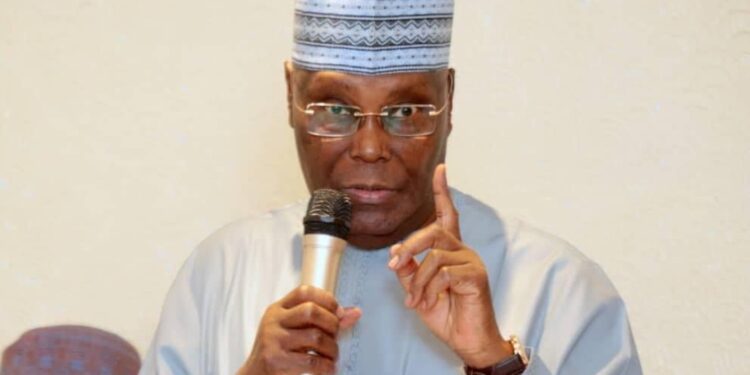Former Vice President Atiku Abubakar has stressed the need for the National Assembly to approach the controversial tax reform bills with objectivity in the interest of Nigerians.
The bills, which include the Nigeria Tax Bill 2024, Tax Administration Bill, Nigeria Revenue Service Establishment Bill and Joint Revenue Board Establishment Bill, continued to generate heated debate among Nigerians since their transmission to the National Assembly in September.
In a statement on his X handle on Sunday, Mr Atiku emphasized the importance of a fiscal system rooted in justice and fairness.
“Nigerians are united in their call for a fiscal system that promotes justice, fairness, and equity”, Mr Atiku stated.
The ex-vice president insisted that the bill must be geared towards ensuring equal development of the federating units in the country.
He said, “They are loud and clear that the fiscal system we seek to promote must not exacerbate the uneven development of the federating units by enhancing the status of a few states while unduly penalising others.”
Mr Atiku urged the National Assembly to revisit the resolutions of the National Economic Council on the bills for the sake of transparency, emphasizing the need for inclusive deliberations.
Mr Atiku noted, “I call on the NASS to revisit and make public the resolutions of the National Economic Council, a key stakeholder and an important organ of the state with the constitutional power to advise the President concerning the economic affairs of the Federation. The NASS must be appropriately guided and ensure that in the final analysis, the contents of the bills align with the interests of the vast majority of Nigerians. I call for objectivity and transparency in the conduct of the public hearing being organised by our representatives in the National Assembly. As a concerned stakeholder, I firmly believe that transparency and objectivity are essential for promoting accountability, good governance, and public trust in policy-making. The public hearing process must facilitate open and inclusive participation by all stakeholders, including civil society organisations, traditional institutions, politicians, public officials, and subject matter experts.’’






